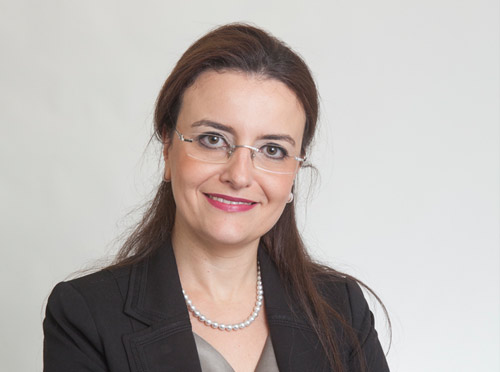
**Important update**
Due to the continued Covid-19 emergency and the need for social distancing, we have made the decision to move the IWFSAS 2020 conference online.
Given the impact of the pandemic on the world economy and the multiple calls for a “green recovery”, the topic of this year’s conference remains of high importance and we look forward to receiving high-quality contributions to this important debate.
The conference will take place as scheduled, 10-11 September 2020.
Please note the new deadline for the call for papers for the virtual conference: 30 June 2020.
Background
The International Workshop on Financial System Architecture and Stability (IWFSAS) provides a forum for academic researchers, practitioners and policy makers to discuss current issues related to the structure and design of financial systems and their impact on macro-financial stability and sustainable economic growth. While the specific theme of the workshop varies from year to year, the overall objective of this annual event is to stimulate discussion of high quality and policy relevant cutting-edge research that informs our understanding of how various financial sector issues can affect the architecture and stability of the financial system and the overall economy, nationally, regionally and globally. Further information on past IWFSAS meetings and featured themes can be found at http://iwfsas.org/previous-iwfsas/
IWFSAS 2020 organizers:
This year’s IWFSAS meeting is hosted by the Centre for Banking Research at Cass Business School, in collaboration with the Gustavson School of Business at the University of Victoria and the Euro-Mediterranean Economists Association (EMEA).
Keynote Speaker

Beata Javorcik Chief Economist, European Bank for Reconstruction and Development (EBRD), Professor of Economics, University of Oxford, and Director at CEPR.
Aim and Topics
The fifth IWFSAS conference offers leading academics, practitioners and policymakers the opportunity to discuss innovative research on a range of topics related to climate risk and sustainable finance. This call for papers asks for reflections on the impact of climate related risks the stability of the financial system and the role of various stakeholders to meet the challenges and opportunities in the transition to a low carbon economy.
There is a consensus among scientists, policy makers and business leaders that climate change creates physical risks (from sea-level rise and weather-related events damaging physical assets and resources and disrupting trade and supply chains) and transition risks (from a sudden and disorderly adjustment to a low carbon economy) to firms in all economic sectors. This presents a major threat to the soundness and stability of the financial system. As explained by Mark Carney, Governor of the Bank of England, in his speech at the TCFD Summit in Tokyo (Oct. 2019): “Changes in climate policies, new technologies and growing physical risks will prompt reassessments of the values of virtually every financial asset. Firms that align their business models to the transition to a net zero world will be rewarded handsomely. Those that fail to adapt will cease to exist. The longer that meaningful adjustment is delayed, the greater the disruption will be.” This threat of disruption of the financial system led major central banks, such as the Bank of England, to include climate risk in its stress-testing framework for banks and insurance companies. In December 2019, The European Commission announced the adoption of a European Green Deal, expected to result in concrete policy actions and changes in the legal framework that will affect all economic sectors in the EU.
In addition to the increasing pressures to assess and manage climate related risks, many finance practitioners and policy makers also recognize the opportunities for them to lead the way in the area of sustainable finance and investments. New regulatory initiatives in developing taxonomy and classification systems for what counts as sustainable financial products and instruments, are emerging in Europe and other jurisdictions to protect investors from “greenwashing”. Asset managers around the world are scrambling to offer new funds that meet the increasing demand from institutional and retail investors for themed impact funds that meet their environmental and social goals in addition to financial returns. However, many challenges remain. As mentioned in the 2018 final report of the EU High Level Expert Group on Sustainable Finance, “reaching our Paris agreement goals requires no less than a transformation of the entire financial system, its culture, and its incentives.”
We invite authors to submit high quality papers on topics related to climate risk and sustainable/green finance including, but not limited to, such topics as:
- Asset pricing and climate risk
- Green bonds and transition-linked financial instruments
- Climate risk, fiduciary duties and other financial regulations
- Divestment vs engagement vs ESG integration strategies by asset managers
- Stranded assets and carbon bubble risks
- Climate-related financial disclosure
- Central banks and the greening of the financial sector
- Insurance, banking & pension funds exposure to climate risks and other ESG issues
- Impact investing, SRIs, and other sustainable finance trends
- Climate and environmental risk management at corporate level
- Taxonomy and other global, regional and national policy issues
- Climate risks and inequality
- Financial innovation and Sustainable Development Goals
- Sustainability in financial systems: stability and crises
We welcome both theoretical and empirical contributions on the above topics, in addition to other general topics that relate to the structure and stability of the financial system.
Program Co-chairs
Local organizing Committee

Francesc Rodriguez-Tous
Cass Business School, City,
University of London
Francesc.Rodriguez-Tous@city.ac.uk












